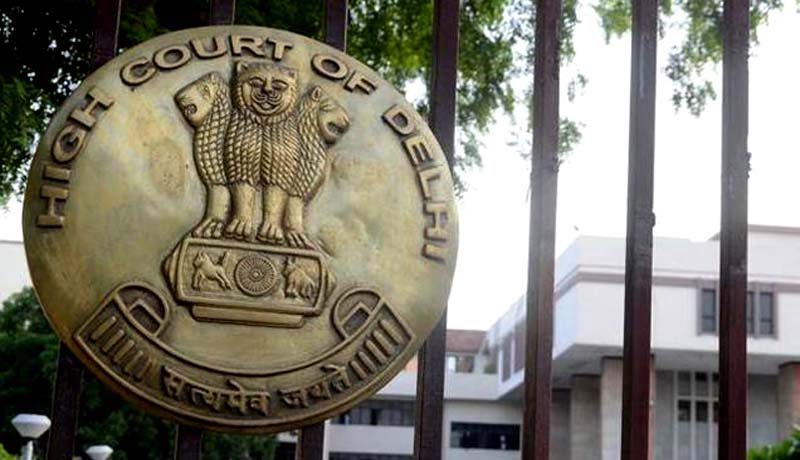Proceedings u/s 38 of the DVAT Act cannot result In reopening of concluded assessment; Delhi HC [Read Judgment]

Denying refund – Delhi HC – taxscan
Denying refund – Delhi HC – taxscan
The Delhi High Court in a recent judgment held that the proceedings u/s 38 of the DVAT Act, which prescribes the procedures relating to refund claim cannot result in re-opening of a concluded assessment. The Court further observed that the reason of re-assessment is not a valid ground for rejecting the refund claim. The highlights of the judgment are the following.
The petitioner Nucleaus Marketing and Communication company is an assessee registered under the provisions of Delhi Value Added Tax Act, 2004 and Central sales Tax Act, 1956. The essential grievance of the Petitioners is against the failure by the Respondent, Commissioner, Delhi Value Added Tax to grant refund together with interest due to the Petitioners in accordance with Section 38 of the DVAT Act. In the case of NMC the refund together with interest was due for the months of November 2012 for the year 2012-13 and in the case of NIPL it was due for the 3rd and 4th quarter for 2012-13 as well as 1st, 2nd, 3rd and 4th quarters of 2013-14.
The petitioner submitted that, in respect of the said claim, the due date for issuance of refund in terms of Section 38 of the DVAT is 27th February 2013. As regards the quarterly returns for the 3rd and 4th quarter relating to 2012-13, returns were filed on 31st October 2013 (revised) and 26th April 2013 (original) respectively. The respective due dates for issuance of the refund as claimed in these returns were 31st December 2013 and 26th June 2013 respectively.
The petitioners further submitted that according to the Circular No. 6 issued by the Commissioner, VAT on 15th June 2015, they are entitled to receive the refund within 15 days from the date of filing of the return where the return is not picked up for audit.It is asserted that neither was the refund issued to the Petitioner within 15 days nor was the case picked up for audit nor any security under Section 38 (5) of the DVAT Act demanded. No notice was issued under Section 59 (2) of the DVAT Act within 10 days from the date of filing return.
On behalf of the petitioners, it is urged that an alternative remedy is available to the Petitioners under the DVAT Act since any return filed by the dealer is deemed to be a notice of assessment under Section 31 (1) (b) of the DVAT Act and if the Commissioner had failed to issue any assessment or order to that effect then the person aggrieved by such failure can file an objection before the Objection Hearing Authority („OHA‟) under Section 74 (2) of the DVAT Act. If the dealer is still aggrieved by the decision of the OHA, an appeal can be preferred before the Appellate Tribunal (AT) under Section 76 (1) of the DVAT Act.
The Court, however, rejected this plea finding that going for alternative remedy would only result in further delay.
Regarding the claim of refund, the Department further contended that in consequent to a survey conducted in the business premises of the assessee, the Department found certain documents and on the basis of which, re-opening of assessment has been initiated against the petitioner. Therefore, refund cannot be granted at this stage.
The bench comprising of Justice S Muralidhar and Justice Najimi Waziri found that in the first place there are strict time limits laid down under Section 38 (3) read with Section 38 (7) of the DVAT Act. For taking any action under Section 38 (8) or 38 (9) or 38 (11) the dealer would have a notice in the first place by the Commissioner. Such notice would have to be only issued in such a manner that the time limit prescribed under Section 38 (3) of the DVAT is not exceeded. Where notice is already issued under Section 58, or additional information sought under Section 59 of the Act, it is only in the circumstances under Section 38 (4) of the DVAT Act, the refund amount sought shall be carried forward to the nexttax period as a tax credit in that period. In other words there are several options available to the Commissioner, VAT or his delegates in response to the application for refund. All these options have to be exercised in such a manner that the time limit under Section 38 (3) is adhered to. Obviously, the proceeding under Section 38 cannot result in reopening of concluded assessment. The statutory rejection for that course of action is entirely different. In other words, having missed the bus on the question of the reopening of a concluded assessment for whatever reason, the Commissioner cannot indirectly at the time of processing the application for refund seek to reopen a concluded assessment.
While concluding, the Court observed that “in view of the law explained in the above decision, the failure by the Respondent to process the refund claimed by the Petitioners for all the above tax periods appear to be wholly unjustified. It is no longer open to the Respondent to raise an objection to the grant of refund claimed together with interest”.
Read the full text of the Judgment below.


